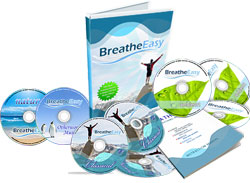Foods to reduce high blood pressure, foods to lower cholesterol and prevent heart disease, foods high in anti-oxidants to help us live longer…
A whole host of foods (or shall we call them a menu?) come with claims of health benefits from natural health enthusiasts. Some of these foods are said to have such profound effects on our health that, if the claims are true, they can rightly be called “superfoods”.
One of the most common health claims is the alleged ability of certain foods to prevent heart disease, particularly through lower blood pressure. The list of these foods is long and just a few making a splash in the media recently include:
- Blueberries: If there is such a thing as a superfood, the humble blueberry fits the bill.
One of America’s few native fruits, the blueberry is alleged to offer an impressive range of health benefits. Proponents claim that eating these berries can boost the immune system to ward off cancer and other illnesses, improve your vision and even take off fat from around the belly.
But it’s the blueberry’s ability to reduce blood pressure that is our main interest here. A recent study by the University of Oklahoma documented drops of 7 to 8 points in systolic blood pressure in a group of people consuming a blueberry smoothie every day for 8 weeks. That’s a significant reduction.
- Chilli Peppers: also of American origin, announce their superfood status with flare.
But despite their burning sensation, chilli peppers are actually a very effective digestive aide. Even more importantly, scientists have revealed that capsicum, the substance that makes peppers hot, works to relax the walls of blood vessels, thus increasing circulation and reducing blood pressure.
- Chocolate: yet another New World native.
Studies in Germany show that people who regularly eat even a small amount of chocolate have not only modestly lower blood pressure but also a 39% lower risk of heart attack or stroke.
Once again, substances found in cocoa called flavanols appear to be responsible for chocolate’s effects on blood pressure.
- Garlic: finally, let’s hear it for Old World food!
In fact, garlic has been used as a health tonic for thousands of years. A “tonic” is generally something that offers multiple health benefits and acts to improve your overall health… and garlic surely does this.
Garlic thins the blood in a similar way to aspirin and has been shown to significantly reduce high blood pressure. In one test garlic’s effect on blood pressure was equal to that of a powerful blood pressure medication. Some of these results are contested by experts but there’s no debate about many of garlic’s other benefits. Garlic is known to reduce “bad” LDL cholesterol, prevent blood clotting and balance blood chemistry, all things that strengthen the heart and prevent heart disease.
- Beetroot: a good Ol’ World tuber prized since days of antiquity.
The media coverage that beetroot has enjoyed for its health benefits is such that numerous food companies have rushed to put new beetroot juice “health drinks” onto supermarket shelves. Those health benefits are namely about lower blood pressure (and “health drinks” are namely about profits!).
Testing has documented blood pressure drops of up to 10 points systolic and 8 points diastolic resulting from drinking beetroot juice. Once again, these are truly significant reductions.
The effect is produced by compounds called nitrates, which are found in abundant supply in beetroot. Nitrates are converted in the body to nitrites, which are well-known for their ability to reduce blood pressure.
The effects of all these foods are impressive but are they really superfoods? Of course the answer depends on how you define “superfood”. But if you think it means the ability to effectively remedy a health condition – in this case high blood pressure – the answer is…
Find out in my next installment: Superfoods For Lower Blood Pressure, Part II! (coming soon)





 A unique method of blood pressure control: The BreatheEasy Sytem
A unique method of blood pressure control: The BreatheEasy Sytem